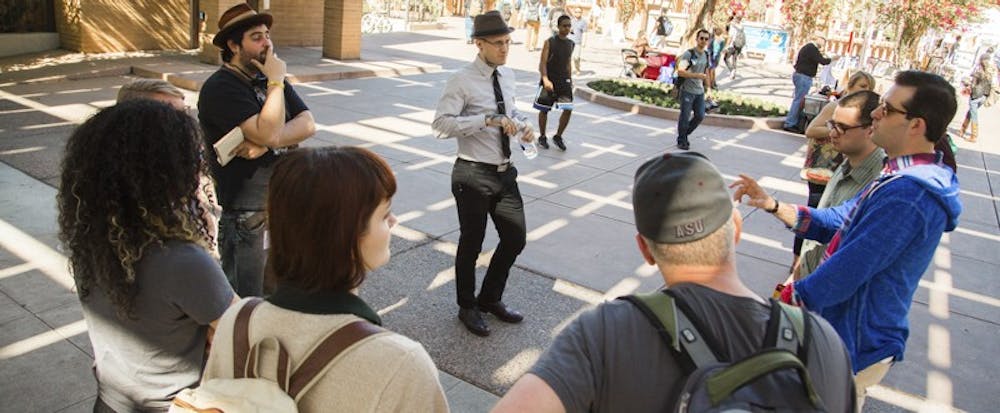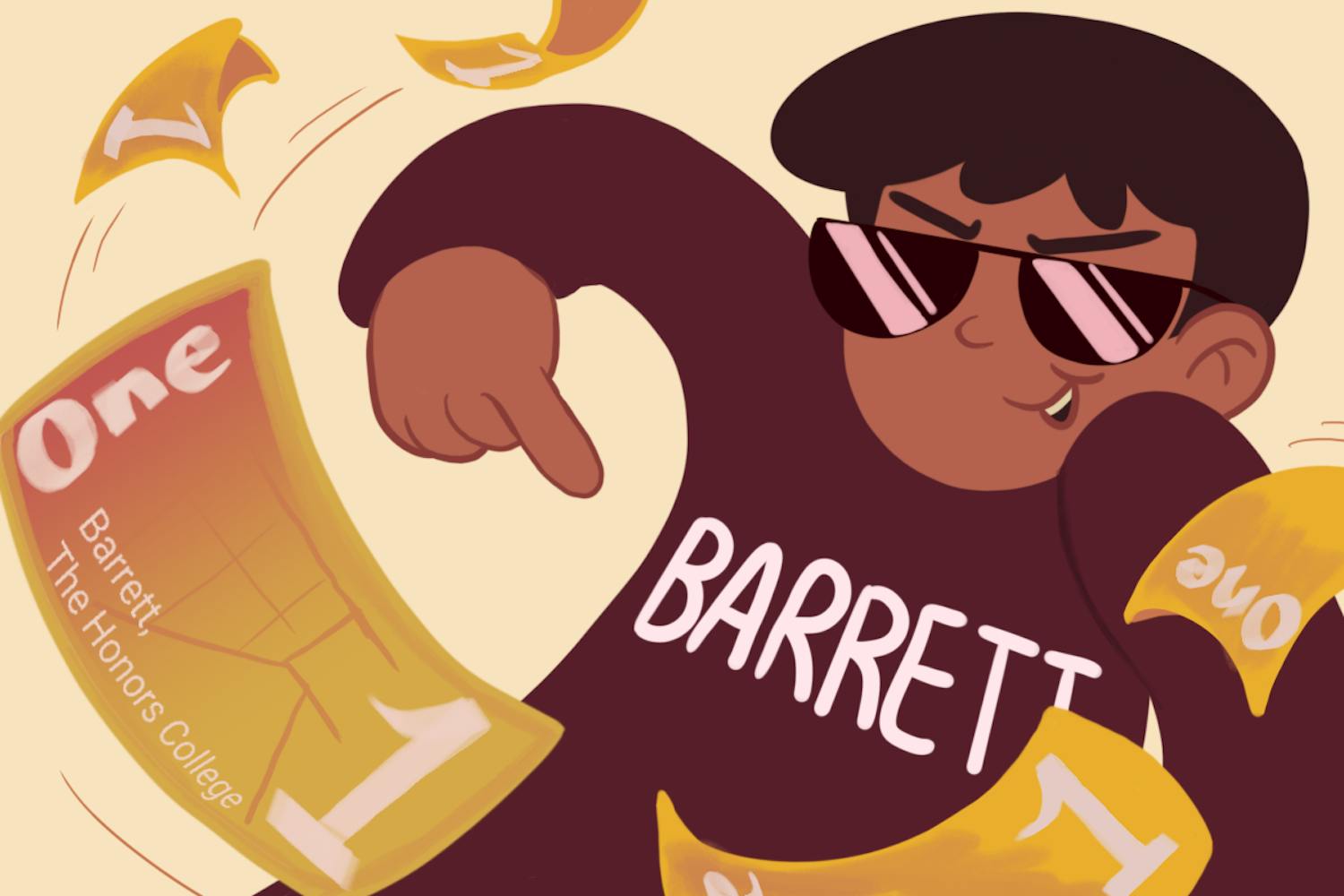After a standoff between the University and several organizations advocating for the end of “The Problem of Whiteness” course, ASU President Michael Crow said the University will continue to support the course because it engages students in deeper thought.
Crow, who spoke about the topic during a meeting with The State Press's editorial board, said he and College of Liberal Arts and Sciences Vice Provost Patrick Kenney personally took a look at the course.
“(The) course looked like a pretty good critical thinking course to me,” Crow said. “It looked like it was doing what it was supposed to do, which is to deal with a complex subject through literature and get students interested in talking and writing and thinking about that complex subject.”
When asked about groups such as National Youth Front, an “elite youth organization dedicated to the preservation of America” which openly protested against the class, Crow said he believed they did not look fully into the course before causing issues.
“Some people, I think, didn’t take a careful look at the course; they just went off the title of the course," Crow said. "The title could have been better to capture what the course was focusing on, but none the less, I think that people criticized the course before they really looked at it.”
He said he believed this led to a national uprising due to the heavy visibility surrounding the course and Lee Bebout, the course professor. Bebout was the center of controversy over the course when NYF posted fliers with his face, depicting him as “anti-white.”
“These individuals outside the University who said these things, they can say whatever they want,” Crow said. “We repudiate what they say, but we can’t stop them from saying it; they can say whatever they want.”
In an earlier interview, Bebout said the course is not unique to ASU, but its title garnered controversy.
“Controversy springs up about every five years or so,” Bebout said. “Usually starting from one individual who (just) reads the title of the course and the titles of the books.”
In his meeting with The State Press's editorial board, Crow defended Bebout and said he was just teaching the course as it should be taught.
“The professor was not attempting to be derogatory toward any group or any race," Crow said. "He was trying to look at the literary concept of an idea of race described by color. That’s the kind of course we should be teaching.”
Those individuals who stir up controversy about the course are not a part of the ASU community, Crow said.
“They don’t represent our values; they don’t represent the way we think," he said. "So we can ask them to stop, but they don’t have to.”
Angelo John Gage, chairman for NYF, said in a previous interview with The State Press that he believes racial demographics determine the functionality of a nation.
“What most people fail to realize is that if you change the racial demographics of a nation, whether through legal or illegal immigration, everything else changes with it,” Gage said. “When white people become a minority in the United States, everything from our culture to our language, holidays, social mores, and values will change. Essentially this means that Western Civilization as we know it in America will cease to exist.”
Crow said he believes the course is very important to understanding the functionality of race in today's society.
“It’s looking at a very important thing, how have we ended up with — in the country — the notion of race as such a strong and powerful social construct, not actually based in biology,” he said.
Reach the reporter at Jlsuerth@asu.edu or on Twitter at @SuerthJessica
Like The State Press on Facebook and follow @statepress on Twitter.




